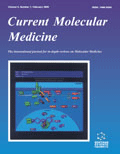
Biomedicines
Scope & Guideline
Pioneering insights in biochemistry, genetics, and beyond.
Introduction
Aims and Scopes
- Translational Research:
Emphasizes bridging laboratory research with clinical practice, aiming to translate scientific discoveries into effective therapeutic strategies. - Molecular Mechanisms of Disease:
Investigates the underlying molecular and cellular mechanisms that contribute to various diseases, focusing on genetic, epigenetic, and biochemical pathways. - Innovative Therapeutics:
Explores novel drug candidates, drug delivery systems, and treatment modalities, including biologics and small molecules, to improve patient care. - Diagnostics and Biomarkers:
Focuses on the identification and validation of biomarkers for disease diagnosis, prognosis, and treatment response, integrating omics technologies. - Microbiome and Disease:
Studies the role of the microbiome in health and disease, including its impact on metabolic, autoimmune, and infectious diseases. - Regenerative Medicine:
Investigates the potential of stem cells, biomaterials, and tissue engineering for regenerative therapies in various medical conditions.
Trending and Emerging
- Immunotherapy Innovations:
Increasing research on immunotherapeutic strategies, particularly in cancer treatment, showcases a shift towards harnessing the immune system to fight tumors. - Personalized Medicine:
A growing emphasis on tailoring treatments based on individual genetic, epigenetic, and phenotypic profiles is evident, reflecting a broader trend in healthcare. - Microbiome Research:
The role of the microbiome in health and disease is increasingly recognized, leading to a surge in studies exploring its implications in various medical conditions. - Artificial Intelligence in Healthcare:
The application of AI and machine learning in diagnostics, treatment planning, and drug discovery is emerging as a significant trend, enhancing research capabilities. - Regenerative Medicine and Stem Cell Therapy:
There is a heightened interest in regenerative therapies, including stem cell applications and tissue engineering, as they offer potential solutions for previously untreatable conditions. - Long COVID Research:
Studies focusing on the long-term effects of COVID-19, including its impact on various organ systems and potential therapeutic interventions, are rapidly emerging as a critical area of inquiry.
Declining or Waning
- Traditional Pharmacology:
Research focusing solely on traditional pharmacology methods is waning as the field moves towards more integrative approaches that combine pharmacology with genomics and personalized medicine. - Basic Science without Clinical Relevance:
Studies that do not connect to clinical applications or translational outcomes are becoming less prominent, with a shift towards research that demonstrates direct relevance to patient care. - Single-Omics Studies:
There is a noticeable decline in the publication of studies focusing exclusively on single-omics approaches (e.g., genomics, proteomics) as the field increasingly values multi-omics integrative studies. - Animal Models with Limited Applicability:
Research utilizing animal models that do not translate well to human conditions is being reconsidered, leading to a decline in studies that do not incorporate human-relevant systems. - Non-Targeted Drug Discovery:
There is a decreasing emphasis on non-targeted drug discovery approaches in favor of more rational drug design and targeted therapies.
Similar Journals

CURRENT MOLECULAR MEDICINE
Exploring the Molecular Mechanisms of Health and DiseaseCURRENT MOLECULAR MEDICINE is a pivotal journal fostering advancements in the interdisciplinary fields of molecular medicine, biochemistry, and genetics. Published by Bentham Science Publishers, this esteemed journal has been disseminating vital research findings since its inception in 2001 and is continuously dedicated to exploring the molecular basis of health and disease. With a focus on translational research, CURRENT MOLECULAR MEDICINE provides an invaluable platform for researchers, healthcare professionals, and students, making significant contributions to the understanding of molecular mechanisms and therapeutic strategies. With an ISSN of 1566-5240 and an E-ISSN of 1875-5666, the journal holds a commendable position within the scientific community, being ranked Q3 in Biochemistry and Molecular Biology and Q2 in Medicine (miscellaneous) as of 2023. This journal does not currently operate on an open access model but remains accessible through various institutional subscriptions. The multidisciplinary scope covering molecular biology to medicinal applications positions CURRENT MOLECULAR MEDICINE as an essential resource for those striving to meet the challenges of modern healthcare and biomedical research.

BIOMEDICAL RESEARCH-TOKYO
Innovating Interdisciplinary Insights in MedicineBIOMEDICAL RESEARCH-TOKYO is an esteemed interdisciplinary journal published by BIOMEDICAL RESEARCH PRESS LTD, dedicated to disseminating pioneering research and advancements in the fields of biochemistry, genetics, and medicine. Since its inception in 1980, the journal has established itself as a reputable source of knowledge, contributing significantly to the global scientific community with its strong emphasis on innovative findings and methodologies. With a consistent presence in the Q3 quartile for both Biochemistry, Genetics and Molecular Biology and Medicine categories as of 2023, it continues to attract a diverse range of research articles. While the journal does not operate as an open access platform, it remains an essential resource for researchers, professionals, and students seeking to further their understanding of biomedical sciences. Located in Sapporo, Japan, this journal fosters collaboration and knowledge sharing among the international biomedical research community, engaging readers through its compelling studies that span from 1980 to 2024.

EMBO Molecular Medicine
Fostering Global Collaboration in Molecular MedicineEMBO Molecular Medicine, published by WILEY, stands as a premier forum within the field of molecular medicine, advancing scholarly dialogue and research since its launch in 2009. With an impressive impact factor reflected in its Q1 categorization and ranking as the 12th journal in the discipline of Molecular Medicine by Scopus, it serves as a vital resource for researchers, professionals, and students alike. Operating under an Open Access model, EMBO Molecular Medicine ensures that cutting-edge research is freely accessible, fostering greater collaboration and innovation among the global scientific community. Located in the United Kingdom, the journal encompasses a broad scope, featuring high-quality studies that bridge the gaps between basic molecular biology and clinical applications, making significant impacts on health and disease. With a commitment to excellence and a continuously evolving repertoire of research, this journal play a crucial role in shaping the future of biomedical research and therapy.

LABORATORY INVESTIGATION
Pioneering Discoveries in Cell and Molecular BiologyLaboratory Investigation is a premier academic journal published by Elsevier Science Inc, specializing in the fields of Pathology, Forensic Medicine, Cell Biology, and Molecular Biology. With its ISSN 0023-6837 and E-ISSN 1530-0307, this journal has been a significant contributor to scientific discourse since its inception in 1952, converging into its current form by 2024. It holds an impressive standing in its respective fields, featuring a 2023 Journal Rank of Q2 in both Cell Biology and Molecular Biology, and an elite Q1 ranking in Pathology and Forensic Medicine, reflecting its influence and quality of research, as seen in its Scopus ranks—17th out of 208 in Pathology and Forensic Medicine. Although it does not offer Open Access options, the journal remains a vital resource for researchers, professionals, and students who seek to disseminate and engage with high-caliber research findings. The importance of Laboratory Investigation is underscored by its commitment to advancing the understanding of laboratory and translational medicine, paving the way for innovations that enhance clinical practices.

Molecular Biomedicine
Connecting Research and Healthcare for a Healthier TomorrowMolecular Biomedicine is a prestigious peer-reviewed journal published by SpringerNature, dedicated to advancing the fields of molecular biology and molecular medicine. With a commendable Q1 ranking in both categories for 2023, this journal stands out for its rigorous exploration of the biochemical processes underlying health and disease. Operating out of Germany, Molecular Biomedicine aims to provide comprehensive insights into cutting-edge research, facilitating interdisciplinary collaboration among researchers, healthcare professionals, and students alike. The journal's impact is reflected in its Scopus rankings, placing it in the upper echelons of the fields of biochemistry, genetics, and molecular biology. As an open access platform, it commits to disseminating knowledge widely, ensuring that pivotal discoveries are accessible to all. Researchers looking to publish in a dynamic environment that prioritizes innovation and application in the biomedical sciences will find Molecular Biomedicine an ideal outlet for their work.

Translational Research
Advancing Health Through Innovative ResearchTranslational Research, published by Elsevier Science Inc, stands at the forefront of the rapidly evolving fields of biochemistry, medicine, physiology, and public health. With an impressive 2023 Q1 ranking in these categories, this journal has established itself as a critical platform for disseminating innovative research that bridges the gap between laboratory findings and clinical application. The journal, which has been converging knowledge since 2006, is committed to advancing scientific understanding and improving health outcomes by publishing high-quality articles that reflect rigorous peer review and impactful findings. With its impressive Scopus rankings, including a rank of #5 in Biochemistry and #7 in Physiology, it is an essential resource for researchers, practitioners, and students dedicated to the translation of scientific breakthroughs into real-world health solutions. Transitioning to an open-access model, the journal enhances accessibility and engagement, inviting a global audience to participate in the discourse shaping the future of healthcare and disease management.

MOLECULAR MEDICINE
Catalyzing Collaboration in Molecular ResearchMOLECULAR MEDICINE, published by SPRINGER, is a leading scholarly journal dedicated to advancing the fields of genetics and molecular biology with a focus on clinical applications. Since its inception in 1994, it has evolved to become a pivotal platform for disseminating innovative research findings, achieving a remarkable Q1 ranking in multiple categories, including Genetics, Molecular Biology, and Molecular Medicine as of 2023. Featuring an Open Access model since 2000, the journal ensures that cutting-edge research is freely available to the global scientific community, facilitating collaboration and knowledge exchange. With a commitment to high-quality peer-reviewed content, MOLECULAR MEDICINE serves as an essential resource for researchers, healthcare professionals, and students seeking to stay at the forefront of molecular research and its implications for medical science. For those interested in contributing to or accessing vital research in this dynamic field, MOLECULAR MEDICINE stands out as a premier choice.

JCI Insight
Connecting Researchers to Pioneering DiscoveriesJCI Insight, published by the American Society for Clinical Investigation, stands as a vital resource in the field of medicine, having achieved a prestigious Q1 rating in the 2023 category for miscellaneous medicine. With an impressive Scopus rank of 27 out of 636, placing it in the 95th percentile, this journal emphasizes the dissemination of high-quality, peer-reviewed research that pushes the boundaries of clinical and translational science. Since becoming an Open Access journal in 2020, JCI Insight has expanded its reach, providing researchers, professionals, and students around the globe with unfettered access to groundbreaking studies and reviews. The journal focuses on a wide spectrum of topics relevant to the medical community, making it an essential platform for sharing innovative findings and fostering collaboration among scientists dedicated to transforming health outcomes. Based in Ann Arbor, Michigan, JCI Insight continues to inspire advancements in medical research, contributing significantly to the ongoing dialogue in the ever-evolving healthcare landscape.

Organogenesis
Pioneering Research in Embryology and Beyond.Organogenesis is a leading journal published by Taylor & Francis Inc, dedicated to advancing the field of developmental biology and regenerative medicine. With an ISSN of 1547-6278 and E-ISSN 1555-8592, this journal spans an extensive research scope that includes embryology, transplantation, and biomedical engineering, distinguishing itself as a crucial platform for researchers and practitioners alike. Its impact is reflected in its performance across various categories in 2023, earning Q3 rankings in Biomedical Engineering and Embryology, Q4 in Developmental Biology, and Q2 in Transplantation, showcasing its reputable standing among peer journals. Moreover, with Scopus rankings indicating strong positioning in the fields of medicine and biochemistry, Organogenesis is essential for those looking to publish or stay updated on pioneering research. The journal facilitates rigorous peer-review and offers a forum for disseminating innovative findings, making it an invaluable resource for academics, professionals, and students committed to understanding the complexities of organism development.

Biomedical Journal
Elevating Biomedical Science to New HeightsThe Biomedical Journal, published by ELSEVIER, serves as a premier platform for disseminating groundbreaking research in the field of medicine, specifically within the Q1 category of Medicine (Miscellaneous). With the ISSN 2319-4170 and E-ISSN 2320-2890, this Open Access journal has been committed to advancing biomedical science since its inception in 2002. With an impressive Scopus rank of #31 out of 636 in General Medicine and a notable placement in the 95th percentile, the journal provides valuable insights and rigorous studies that contribute significantly to the medical community. Based in the Netherlands at RADARWEG 29, 1043 NX AMSTERDAM, the journal is highly regarded for its timely and diverse range of articles, fostering collaboration and innovation amidst researchers, professionals, and students alike. The ongoing engagement in the journal's converged years from 2012 to 2024 underscores its commitment to keeping pace with the evolving landscape of biomedical research, making it an essential resource for those seeking to stay at the forefront of medical advancements.